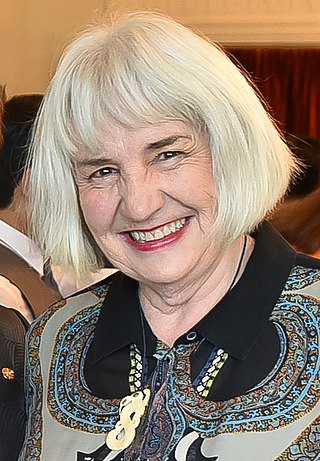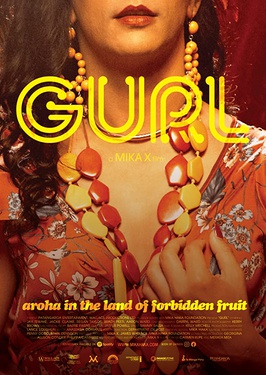Related Research Articles

A film crew is a group of people, hired by a production company, for the purpose of producing a film or motion picture. The crew is distinguished from the cast, as the cast are understood to be the actors who appear in front of the camera or provide voices for characters in the film. The crew is also separate from the producers, as the producers are the ones who own a portion of either the film studio or the film's intellectual property rights. A film crew is divided into different departments, each of which specializes in a specific aspect of the production. Film crew positions have evolved over the years, spurred by technological change, but many traditional jobs date from the early 20th century and are common across jurisdictions and filmmaking cultures.

A production sound mixer, location sound recordist, location sound engineer, or simply sound mixer is the member of a film crew or television crew responsible for recording all sound recording on set during the filmmaking or television production using professional audio equipment, for later inclusion in the finished product, or for reference to be used by the sound designer, sound effects editors, or foley artists. This requires choice and deployment of microphones, choice of recording media, and mixing of audio signals in real time.
Filmmaking or film production is the process by which a motion picture is produced. Filmmaking involves a number of complex and discrete stages, starting with an initial story, idea, or commission. It then continues through screenwriting, casting, pre-production, shooting, sound recording, post-production, and screening the finished product before an audience that may result in a film release and an exhibition. Filmmaking occurs in a variety of economic, social, and political contexts around the world. It uses a variety of technologies and cinematic techniques.

The Museum of New Zealand Te Papa Tongarewa is New Zealand's national museum and is located in Wellington. Usually known as Te Papa, it opened in 1998 after the merging of the National Museum of New Zealand and the National Art Gallery. An average of more than 1.5 million people visit every year, making it the 26th-most-visited art gallery in the world. Te Papa operates under a bicultural philosophy, and emphasises the living stories behind its cultural treasures.
Television crew positions are derived from those of film crew, but with several differences.

Happy Birthday, Charlie Brown is a prime-time animated TV special based upon the comic strip Peanuts, by Charles M. Schulz. It was originally aired on the CBS network on January 5, 1979.

Reach for Glory is a 1962 British film adaptation of John Rae's 1961 novel, The Custard Boys, directed by Philip Leacock. It received a United Nations Award.
MOS is a standard filmmaking jargon acronym used in production reports to indicate an associated film segment has no synchronous audio track.

Dame Gaylene Mary Preston is a New Zealand filmmaker with a particular interest in documentary films.
Dame Cheryll Beatrice Sotheran was a New Zealand museum professional. She was the founding chief executive of the Museum of New Zealand Te Papa Tongarewa and was credited with the successful completion of the museum, considered the largest international museum project of the 1990s.

The Human Animal: A Personal View of the Human Species is a British nature documentary series written and presented by English zoologist Desmond Morris, first transmitted on BBC One in the United Kingdom from 27 July to 31 August 1994. It was co-produced in association with Discovery Communications in the United States, as well as several public broadcasters include: ORF in Austria, various ARD networks in Germany, and Teleac in the Netherlands.
Merata Mita was a New Zealand filmmaker, producer, and writer, and a key figure in the growth of the Māori screen industry.
Kevin Kearney is an Australian analogue location sound recordist, film producer, director, actor and digital producer, director and editor.
The 2012 New Zealand Television Awards were the new name of the New Zealand television industry awards, following the demise of the Aotearoa Film and Television Awards. The awards were held on Saturday 3 November at The Great Room of the Langham hotel in Auckland, New Zealand, with highlights screening on TV ONE on Sunday 4 November. The New Zealand Television Awards took a similar format to the previous Qantas Television Awards, honouring excellence in New Zealand television and television journalism. This was the final New Zealand television awards presentation organised by Think TV, after Television New Zealand withdrew its support in 2013.
The 2010 Qantas Film and Television Awards were held on Saturday 18 September at the Civic Theatre in Auckland, New Zealand. The craft awards were presented in a separate awards lunch at the Auckland Town Hall on Friday 17 September. It was the final of the Qantas Film and Television Awards, before Qantas was lost as the naming-rights sponsor and the awards were renamed the Aotearoa Film and Television Awards.
James Mack was a curator, director, advisor and arts advocate in New Zealand and the Pacific.

Kate JasonSmith is a New Zealand actor, film producer, playwright, filmmaker, photographer, and businesswoman. Based in Wellington, she has studied and worked elsewhere, including Australia, Ireland, and the United Kingdom. A feminist, as a theatre and film practitioner, she has been most recognized throughout her career for her role in establishing and producing Hens' Teeth, a platform for dozens of Kiwi female actors, musicians, and comedians that became a staple of the New Zealand theatre and comedy scene between 1988 and 1996. Her short film, Xmas for Lou (1992), won the Best Drama – Television award in the New Zealand Film and Television Awards of 1994. From 2018 on, the one-woman show I'll Tell You This for Nothing: My Mother the War Hero has received national and international praise for both the play, which she wrote, and her performance. JasonSmith is a member of the New Zealand Society of Authors/Te Puni Kaituhi O Aotearoa.

Warrick 'Waka' Attewell is a New Zealand cinematographer who over a long career has worked on many notable film and television productions. He joined John O'Shea's Pacific Films early in his career where he worked on Tangata Whenua - the People of the Land (1974), directed by Barry Barclay, and written and presented by Michael King. Independently and through his production company Valhalla Films, Attewell has filmed and directed short films, features, documentary, music video's and commercials. Developing future film makers has been part of Attewell's career, teaching cinematography at various film schools in New Zealand. Attewell has also worked with many well known New Zealand personalities and entertainers including briefly with Billy T James on a commercial. Attewell was director of photography on the documentary about Billy T James called Billy T: Te Movie (2011). Most recently Attewell was cinematographer and concept director on the Undertow (2019) television series screened on Māori Television in New Zealand.

GURL is a 2020 New Zealand short film directed, written and produced by Mika X. The film premiered at the New Zealand International Film Festival as part of the "Ngā Whanaunga Māori Pasifika Shorts 2020" selection curated by Leo Koziol and Craig Fasi. GURL tells a story of Carmen Rupe experience in the context of being both Maori and LGBT: "The infamous Māori Drag Queen Carmen 'Gurl' finally accepts her-true-self when she falls in love with a fading rugby star on an ill-fated night in New Zealand 1975." This short film is a prequel to the feature film "The Book of Carmen" which has been in pre-production since the release of GURL.
Patu! is a 1983 New Zealand documentary film directed by Merata Mita about the controversial 1981 Springbok tour. It follows the inner workings of the campaign against the tour, and captures scenes of violent conflict between police and protesters. It is a significant work of activist and indigenous filmmaking, and of New Zealand filmmaking in general.
References
- ↑ "Getting to Our Place". NZ On Screen . Gaylene Preston Productions. 1999. Retrieved 17 March 2023.
- 1 2 Calder, Peter. "Intricate map of rocky road travelled to Te Papa". The New Zealand Herald . Retrieved 30 January 2023.
- ↑ "Getting to Our Place". British Film Institute. 1999.
- ↑ "Getting to our place". National Library of New Zealand. 1999.